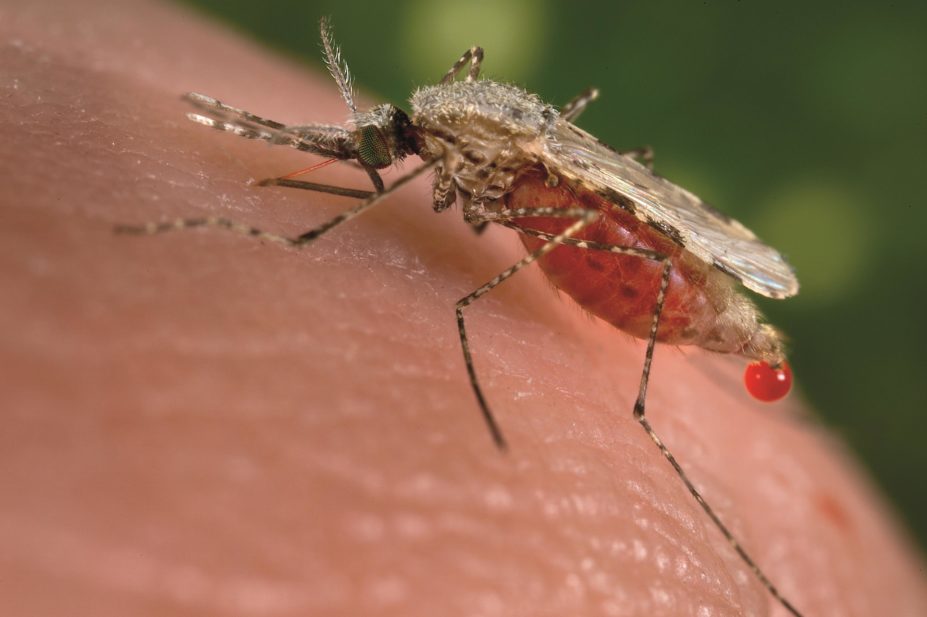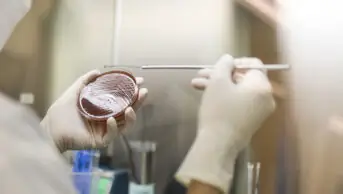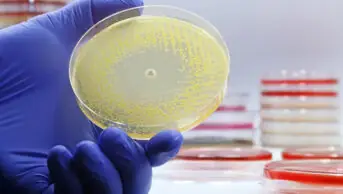
Jim Gathany / Centers for Disease Control and Prevention’s Public Health Image Library
Malaria that is resistant to both drugs contained in the combination dihydroartemisinin–piperaquine has been identified in patients in Cambodia for the first time, according to a study published in The
Lancet Infectious Diseases
[1]
. Resistance to artemisinin is already well-documented but this is the first time parasites resistant to piperaquine have also been established in patients.
A research collaboration between the United States, Cambodia and the UK recruited 241 patients aged between 2 and 65 years with uncomplicated acute malaria. Patients were recruited from three different areas in Cambodia where artemisinin resistance ranged from 76%, 21% and 4%. They were given standard three-day treatment with dihydroartemisinin–piperaquine. After 63 days, 46%, 16% and 2% of the patients had recrudescence — the recurrence of malaria after a long latency period, often the result of treatment failure. Samples of recrudescent Plasmodium falciparum malaria parasites had higher piperaquine minimum inhibitory concentrations and a higher frequency of kelch13 mutations, associated with artemisinin resistance.
The new evidence, in combination with previous studies, suggest that “parasites resistant to artemisinin and piperaquine are spreading rapidly in Cambodia”, say the authors of the study, who add that “investigations of alternative treatment approaches are urgently needed”.
A combination treatment of piperaquine and artemisinin is recommended as the first-line treatment for multi-drug resistant malaria around the world. Combination treatment makes the development of resistance less likely. However, there has been a rapid spread of artemisinin resistance, making it easier for an already artemisinin-resistant parasite to also develop resistance to piperaquine.
References
[1] Amaratunga C, Lim P, Suon S et al. Dihydroartemisinin–piperaquine resistance in Plasmodium falciparum malaria in Cambodia: a multisite prospective cohort study. The Lancet Infectious Diseases 2016. doi:10.1016/S1473-3099(15)00487-9


